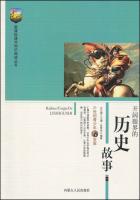The master stood for some moments chagrined and bewildered; it was characteristic of his temperament that he had paid less heed to what she told him than what he IMAGINED had passed between her mother and herself. She was naturally jealous of the letters--he could forgive her for that; she had doubtless been twitted about them, but he could easily explain them to her parents--as he would have done to her. But he was not such a fool as to elope with her at such a moment, without first clearing his character--and knowing more of hers. And it was equally characteristic of him that in his sense of injury he confounded her with the writer of the letters--as sympathizing with his correspondent in her estimate of his character, and was quite carried away with the belief that he was equally wronged by both.
It was not until he reached the schoolhouse that the evidences of last night's outrage for a time distracted his mind from his singular interview. He was struck with the workmanlike manner in which the locks had been restored, and the care that had evidently been taken to remove the more obvious and brutal traces of burglary. This somewhat staggered his theory that Seth Davis was the perpetrator; mechanical skill and thoughtfulness were not among the lout's characteristics. But he was still more disconcerted on pushing back his chair to find a small india-rubber tobacco pouch lying beneath it. The master instantly recognized it: he had seen it a hundred times before--it was Uncle Ben's. It was not there when he had closed the room yesterday afternoon. Either Uncle Ben had been there last night, or had anticipated him this morning.
But in the latter case he would scarcely have overlooked his fallen property--that, in the darkness of the night, might have readily escaped detection. His brow darkened with a sudden conviction that it was Uncle Ben who was the real and only offender, and that his simplicity of the previous night was part of his deception. A sickening sense that he had been again duped--but why or to what purpose he hardly dared to think--overcame him. Who among these strange people could he ever again trust? After the fashion of more elevated individuals, he had accepted the respect and kindness of those he believed his inferiors as a natural tribute to his own superiority; any change in THEIR feelings must therefore be hypocrisy or disloyalty; it never occurred to him that HE might have fallen below their standard.
The arrival of the children and the resumption of his duties for a time diverted him. But although the morning's exercise restored the master's self-confidence, it cannot be said to have improved his judgment. Disdaining to question Rupert Filgee, as the possible confidant of Uncle Ben, he answered the curious inquiries of the children as to the broken doorlock with the remark that it was a matter that he should have to bring before the Trustees of the Board, and by the time that school was over and the pupils dismissed he had quite resolved upon this formal disposition of it.
In spite of Cressy's warning--rather because of it--in the new attitude he had taken towards her and her friends, he lingered in the school-house until late. He had occupied himself in drawing up a statement of the facts, with an intimation that his continuance in the school would depend upon a rigid investigation of the circumstances, when he was aroused by the clatter of horses' hoofs.
The next moment the school-house was surrounded by a dozen men.
He looked up; half of them dismounted and entered the room. The other half remained outside darkening the windows with their motionless figures. Each man carried a gun before him on the saddle; each man wore a rude mask of black cloth partly covering his face.
Although the master was instinctively aware that he was threatened by serious danger, he was far from being impressed by the arms and disguise of his mysterious intruders. On the contrary, the obvious and glaring inconsistency of this cheaply theatrical invasion of the peaceful school-house; of this opposition of menacing figures to the scattered childish primers and text-books that still lay on the desks around him, only extracted from him a half scornful smile as he coolly regarded them. The fearlessness of ignorance is often as unassailable as the most experienced valor, and the awe-inspiring invaders were at first embarrassed and then humanly angry. A lank figure to the right made a forward movement of impotent rage, but was checked by the evident leader of the party.
"Ef he likes to take it that way, there ain't no Regulators law agin it, I reckon," he said, in a voice which the master instantly recognized as Jim Harrison's, "though ez a gin'ral thing they don't usually find it FUN." Then turning to the master he added, "Mister Ford, ef that's the name you go by everywhere, we're wantin' a man about your size."
Ford knew that he was in hopeless peril. He knew that he was physically defenceless and at the mercy of twelve armed and lawless men. But he retained a preternatural clearness of perception, and audacity born of unqualified scorn for his antagonists, with a feminine sharpness of tongue. In a voice which astonished even himself by its contemptuous distinctness, he said: "My name IS Ford, but as I only SUPPOSE your name is Harrison perhaps you'll be fair enough to take that rag from your face and show it to me like a man."
The man removed the mask from his face with a slight laugh.
"Thank you," said Ford. "Now, perhaps you will tell me which one of you gentlemen broke into the school-house, forced the lock of my desk, and stole my papers. If he is here I wish to tell him he is not only a thief, but a cur and a coward, for the letters are a woman's--whom he neither knows nor has the right to know."















